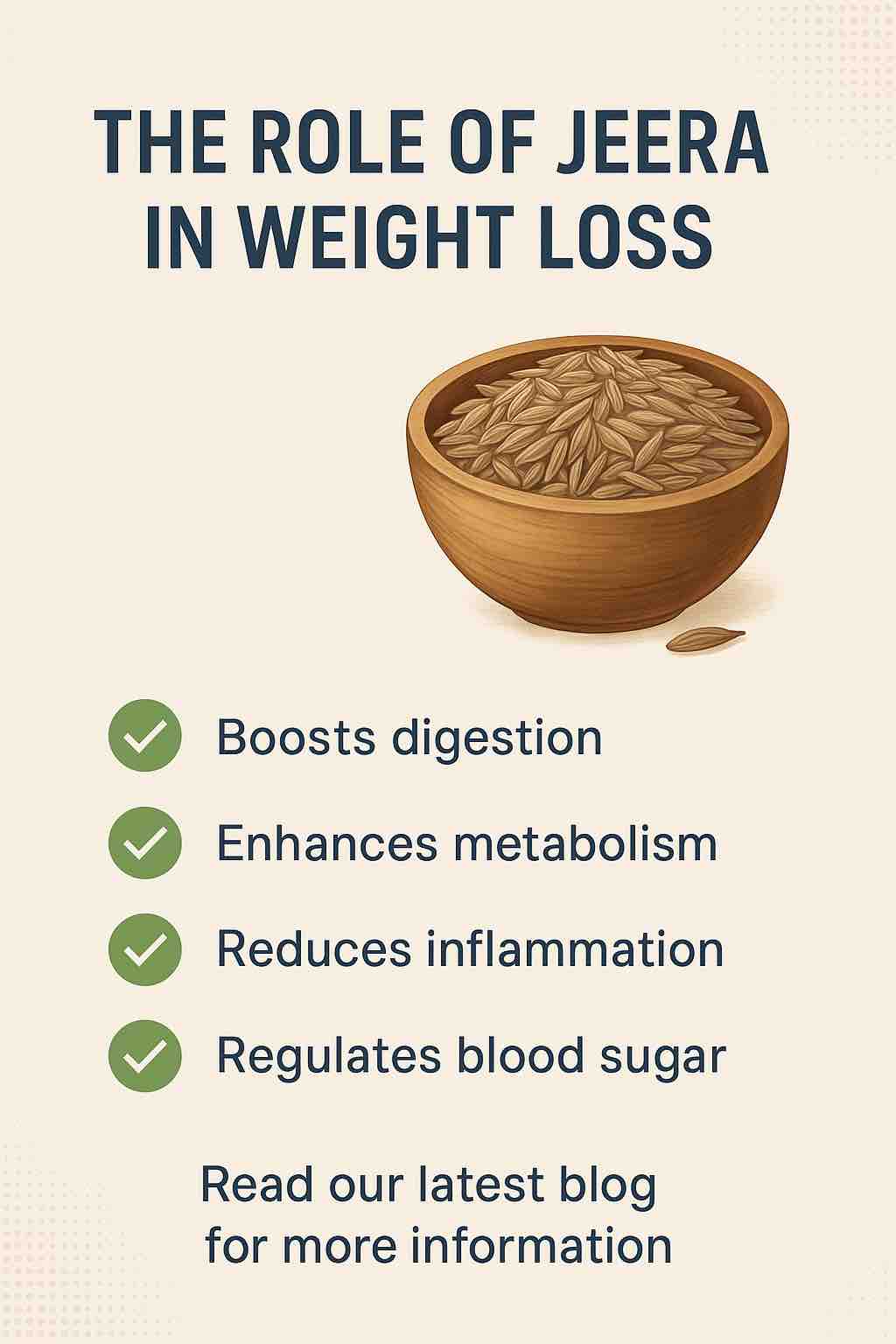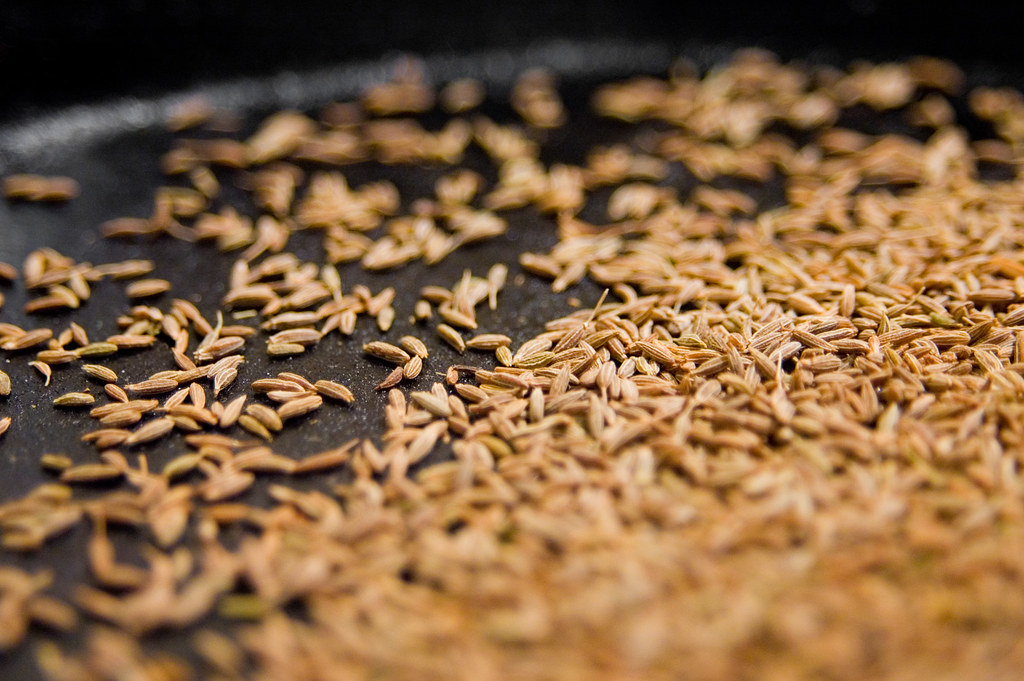
Introduction
As the aroma of freshly ground cumin seeds wafts through the kitchen, it not only tantalizes the taste buds but also brings to mind a crucial question for expectant mothers: “Is this beloved spice safe for me during pregnancy?” Cumin, with its distinctive earthy flavor and a hint of citrus, has graced culinary traditions across the globe, from the fragrant biryanis of India to the hearty chilis of Mexico. Yet, in the journey of pregnancy, where every dietary choice is meticulously pondered, the safety of even the most common ingredients like cumin comes under scrutiny.
Pregnancy is a time of immense joy and anticipation, but also one of caution and care, especially when it comes to nutrition. The foods and spices that once were selected for flavor and tradition now bear the additional responsibility of nourishing and protecting both mother and child. In this intricate dance of nourishment, cumin emerges not just as a spice, but as a subject of maternal health and well-being.
For centuries, cumin has been more than just a culinary staple. In various cultures, it has held a place of honor in traditional medicine cabinets, touted for its digestive, anti-inflammatory, and antioxidant properties. But how does this translate into the context of pregnancy? Can the same spice that adds a kick to your favorite dish also support a healthy pregnancy, or does it carry risks that need careful consideration?
This blog post aims to unravel the mysteries surrounding cumin’s use during pregnancy. Through a blend of scientific research, nutritional expertise, and culinary know-how, we will explore whether cumin is a friend or foe in the maternal diet. Whether you’re an expectant mother navigating the maze of pregnancy nutrition, a supportive partner, or simply a health enthusiast, this journey into the world of cumin promises to enlighten and guide you.
Join us as we sift through facts and folklore to uncover the truth about cumin during pregnancy, ensuring that your journey to motherhood is as informed as it is flavorful.
Overview of Cumin: A Spice with Global Footprints
Before delving into the specifics of cumin’s role in pregnancy, let’s take a moment to appreciate the rich tapestry of this ancient spice. Cumin, known scientifically as Cuminum cyminum, has a storied history that spans continents and cultures, carving its niche in both culinary and medicinal worlds.
Historical and Cultural Significance
Cumin’s journey begins in the Eastern Mediterranean and the Middle East, where it was not only valued as a flavor enhancer but also revered for its medicinal properties. Ancient texts and folklore are peppered with references to cumin, suggesting its use in everything from digestive aids to rituals of luck and prosperity. As trade routes expanded, cumin found its way into the heart of Indian, African, and Latin American cuisines, each culture embracing and transforming it into a cornerstone of their culinary practices.
Cumin in Culinary Arts
In the culinary realm, cumin’s distinct, warm, and earthy flavor, with a hint of bitterness, makes it a versatile spice. It is used in various forms – whole seeds, ground powder, and as an essential oil. Each form offers a different experience: the whole seeds add a textural element and a burst of flavor, while the ground form provides a more uniform and intense taste.
Global Culinary Applications
- Middle Eastern Cuisine: Cumin seasons a plethora of dishes, from falafel to hummus, lending a depth that is both subtle and profound.
- Indian Gastronomy: It’s a staple in Indian spice blends like garam masala and is essential in dishes like tandoori chicken, dal (lentil soup), and various curry preparations.
- Latin American Cooking: Cumin plays a pivotal role in Mexican and South American cuisines, flavoring dishes like tacos, enchiladas, and sofritos.
Varieties of Cumin
There are primarily two types of cumin commonly used in cooking:
- Regular Cumin (Cuminum cyminum): This is the most widely used variety, known for its brownish-yellow color and sharp, pungent flavor.
- Black Cumin (Bunium bulbocastanum): Also known as Nigella seeds or black caraway, it differs in appearance, taste, and cost, offering a more complex flavor profile.
Nutritional Profile
Cumin is not just a flavor enhancer; it’s a storehouse of nutrients. Rich in iron, manganese, and other essential minerals, it also boasts a variety of beneficial phytochemicals known for their antioxidant properties.
Cumin’s Medicinal Use
Traditionally, cumin has been used for its digestive properties, helping to alleviate bloating and improve gut health. Its anti-inflammatory and antimicrobial qualities have also been leveraged in various traditional medicine systems.
As we transition from the general attributes of cumin to its specific implications during pregnancy, it becomes evident that this is not just a spice. It’s a link to our past, a staple in our present, and, as we will see, a topic of importance for expectant mothers looking towards a healthy future.
The Importance of Diet in Pregnancy: Navigating Nutritional Choices
Embarking on the journey of pregnancy brings a heightened sense of awareness about the foods and spices consumed, as diet plays a critical role in the health and well-being of both the mother and the developing fetus. In this landscape of nutritional vigilance, understanding the role of spices like cumin becomes essential. This section explores the profound importance of dietary choices during pregnancy and how cumin, with its unique properties, fits into this delicate equation.
Navigating Nutritional Needs During Pregnancy
The nutritional demands of pregnancy are unique and dynamic, encompassing a wide spectrum of needs. The body requires additional vitamins, minerals, and macronutrients to support the growing fetus and maintain maternal health. Crucial nutrients such as iron, calcium, folic acid, and omega-3 fatty acids take on a heightened importance, making a balanced and thoughtfully planned diet crucial.
Dietary Concerns and Precautions
Pregnancy often alters taste preferences and can introduce new sensitivities or aversions. Some women may experience a heightened sensitivity to strong flavors and smells, including those of spices like cumin. Navigating these changes requires a careful balance between fulfilling nutritional needs and respecting the body’s altered responses.
The Role of Spices in Pregnancy Nutrition
Spices, including cumin, can play a multifaceted role in a pregnancy diet. While they add flavor and can make food more appealing, especially when nausea and altered taste perceptions are at play, they also bring potential health benefits. However, the question of safety and moderation is paramount.
The Case for Cumin in Pregnancy
Cumin’s Nutritional Profile
Cumin, known for its iron content, can be particularly beneficial in addressing the increased iron needs during pregnancy. Iron is vital for the formation of hemoglobin, which is crucial for both the mother and the fetus.
Digestive Aid
Cumin’s reputation as a digestive aid can also be beneficial during pregnancy, a time when digestive discomfort is common. Its potential to alleviate bloating and improve gut health can contribute to maternal comfort.
Adapting Diet Across Different Trimesters
Each trimester of pregnancy comes with its own set of dietary considerations. The first trimester, often marked by nausea and morning sickness, may require a diet that is gentle on the stomach, where cumin’s digestive properties could be beneficial. As the pregnancy progresses, the nutritional focus shifts, and the way cumin is used in the diet may also evolve.
Cumin: A Spice for Consideration
As we delve deeper into the nuances of cumin’s use during pregnancy, we find ourselves at the intersection of culinary delight and maternal health. The following sections will explore the safety profile of cumin during pregnancy, its potential benefits, and the best ways to incorporate it into a pregnancy-friendly diet.
Cumin During Pregnancy: Assessing Safety and Potential Benefits
As we delve deeper into the exploration of cumin’s role in pregnancy, it’s crucial to carefully assess its safety and potential health benefits. This section aims to provide a nuanced understanding of how cumin, a spice revered in many cultures, interacts with the unique physiological demands of pregnancy.
Safety Profile of Cumin in Pregnancy
The primary concern for any food or spice during pregnancy is its safety. Can it potentially harm the mother or the developing baby? For cumin, the consensus among health experts is generally reassuring but comes with caveats.
Moderation is Key
The mantra for consuming cumin during pregnancy is moderation. While cumin is safe when used as a culinary spice in normal food quantities, excessive consumption can lead to undesirable side effects. Overindulgence in cumin may cause issues such as heartburn or increased body heat, which can be uncomfortable during pregnancy.
Trimester-Specific Considerations
Each trimester of pregnancy presents unique challenges and nutritional requirements. During the first trimester, when the foundation for fetal development is laid, it’s advisable to be more cautious with dietary choices, including the use of spices like cumin. As the pregnancy progresses, the body generally adapts better, and cumin can be used more comfortably within culinary limits.
Potential Health Benefits of Cumin for Pregnant Women
Beyond its safety profile, cumin is celebrated for its potential health benefits, which may be particularly advantageous during pregnancy.
Digestive Comfort
Cumin is renowned for aiding digestion, a benefit that can be crucial during pregnancy when digestive discomforts like bloating and indigestion are common. Its carminative properties can provide much-needed relief.
Nutritional Contribution
Rich in iron, cumin can be beneficial in managing the increased iron needs of pregnancy. Adequate iron intake is vital for preventing anemia and ensuring proper fetal development.
Anti-inflammatory and Antibacterial Effects
The anti-inflammatory and antibacterial properties of cumin may also be beneficial during pregnancy, potentially aiding in overall health and well-being.
Considering Cumin in Different Forms
Cumin is available in various forms – seeds, ground powder, and even as an oil. While seeds and ground cumin are generally safe when used in cooking, cumin oil is more concentrated and should be used with caution. Pregnant women are advised to avoid using cumin oil unless under the guidance of a healthcare professional.
Consulting Healthcare Professionals
Despite the general safety and potential benefits of cumin, it’s crucial for pregnant women to consult with their healthcare providers before making any significant changes to their diet, including the use of spices like cumin. This is particularly important for those with pre-existing health conditions or specific dietary restrictions.
In conclusion, cumin can be a safe and beneficial addition to a pregnancy diet, but its use must be balanced with awareness and caution. The subsequent sections will further explore how to incorporate cumin into a pregnancy-friendly diet, ensuring that its use is both safe and enjoyable.
Incorporating Cumin into a Pregnancy Diet: Practical Tips and Recipes
With the understanding that cumin can be safely enjoyed during pregnancy when used in moderation, let’s explore practical ways to incorporate this versatile spice into a pregnancy-friendly diet. This section provides expectant mothers with creative, nutritious, and delicious ideas for including cumin in their meals, ensuring both safety and enjoyment.
Understanding Cumin’s Culinary Versatility
Cumin’s unique earthy, slightly bitter flavor with hints of citrus makes it a favorite in many cuisines. Its versatility allows it to be incorporated into a wide array of dishes, enhancing flavors without overwhelming them.
Creative Culinary Uses of Cumin
- Incorporation in Daily Meals: Cumin can be used to season vegetables, meats, and legumes. Its earthy tone pairs well with a variety of ingredients, adding depth and complexity to dishes.
- Cumin in Soups and Stews: A pinch of cumin can elevate the flavor profile of soups and stews, making them more appealing, especially during pregnancy when taste preferences may change.
Cumin in Beverages
- Cumin Tea and Water: Cumin tea, made by boiling cumin seeds in water, is a soothing drink that can help with digestion and morning sickness. Cumin water is a milder version that can be easily made at home and consumed for its digestive benefits.
Cooking with Cumin: Tips for Expectant Mothers
- Start Small: If you’re new to cumin or have developed heightened sensitivity during pregnancy, start with a small amount and see how your body reacts.
- Whole vs. Ground Cumin: Whole cumin seeds offer a milder flavor and can be removed easily from dishes if needed. Ground cumin provides a more intense flavor but should be used sparingly.
Cumin Recipes for Pregnancy
Let’s look at a few simple, nutritious, and delicious recipes that incorporate cumin, catering to the diverse taste preferences and dietary needs of pregnant women:
- Cumin-Flavored Rice or Quinoa: A simple and nutritious dish where cumin seeds can be lightly toasted and then cooked with rice or quinoa, providing a subtle yet delightful flavor.
- Cumin-Spiced Vegetable Stir-Fry: A healthy and easy-to-prepare dish that combines fresh vegetables with a hint of cumin for a flavorful meal.
Mindful Use of Cumin in Pregnancy
Incorporating cumin into a pregnancy diet offers the opportunity to enjoy its unique flavor while tapping into its potential health benefits. However, as with any dietary choice during pregnancy, it’s important to prioritize safety and moderation. If you have any specific dietary restrictions or health concerns, consulting with a healthcare provider is advisable.
Embracing cumin in your pregnancy diet can add both flavor and nutritional value to your meals. The key is to use it judiciously, respecting its potency and your body’s needs during this special time.
In the next section, we will answer some frequently asked questions about cumin during pregnancy, addressing common concerns and providing further clarity on this aromatic spice’s role in prenatal nutrition.
Frequently Asked Questions: Cumin and Pregnancy
In this section, we address some of the most common questions and concerns about consuming cumin during pregnancy. These FAQs are designed to provide expectant mothers with comprehensive and clear information, helping them make informed decisions about including cumin in their diets.
1. Can Consuming Cumin Lead to Complications During Pregnancy?
While cumin is generally safe when consumed in culinary quantities, excessive intake can lead to side effects like heartburn or increased body heat. It’s important to consume cumin in moderation and be aware of your body’s responses.
2. Is It Safe to Drink Cumin Tea During Pregnancy?
Cumin tea, typically made by boiling cumin seeds in water, is considered safe for pregnant women if consumed in moderation. It’s a soothing beverage that can aid digestion and alleviate morning sickness. However, always monitor your body’s reaction and consult your healthcare provider if you have any concerns.
3. How Much Cumin Is Safe to Consume During Pregnancy?
While there’s no set dosage for cumin during pregnancy, moderation is key. An average person can safely consume up to 3 grams of cumin daily, but pregnant women should aim for less, sticking to the amounts typically used in food.
4. Can Cumin Help with Digestive Issues During Pregnancy?
Cumin is known for its digestive properties and can help relieve common pregnancy-related digestive issues like bloating and indigestion. Its carminative properties can provide much-needed comfort.
5. Are There Any Risks of Allergic Reactions to Cumin During Pregnancy?
As with any food, there’s a potential for allergic reactions to cumin. If you’ve never had cumin before, start with a small amount and be mindful of any adverse reactions. If you experience symptoms like itching or swelling, consult a healthcare professional.
6. What Are the Nutritional Benefits of Cumin for Pregnant Women?
Cumin is rich in iron, which is essential during pregnancy for the formation of hemoglobin. It also contains fiber, which can help alleviate constipation, a common issue during pregnancy.
7. Are There Any Specific Ways to Include Cumin in a Pregnancy Diet?
Cumin can be included in various ways, such as sprinkled over dishes, added to soups, or used in teas. The key is to use it in moderation as part of a balanced diet.
8. Can Cumin Be Used in All Trimesters of Pregnancy?
Yes, cumin can be used in all trimesters, but caution is advised during the first trimester due to the increased risk of miscarriage. As with any dietary choice during pregnancy, moderation and consultation with a healthcare provider are recommended.
Conclusion
Cumin, with its unique flavor and health benefits, can be a safe and beneficial addition to a pregnancy diet when used judiciously. It’s important to balance the enjoyment of this spice with an awareness of its potency and your body’s needs during pregnancy. Always prioritize safety and moderation, and consult your healthcare provider for personalized advice.
In the next section, we’ll provide a summary and concluding thoughts on the safe and beneficial use of cumin during pregnancy.
Summary and Concluding Thoughts: Embracing Cumin During Pregnancy
As we conclude our exploration into the use of cumin during pregnancy, let’s summarize the key insights and offer some final thoughts for expectant mothers considering incorporating this spice into their diets.
Revisiting the Key Points
- Safety and Moderation: Cumin is generally safe for consumption during pregnancy when used in moderation. Its use as a culinary spice adds flavor and can contribute positively to prenatal nutrition without posing significant risks to maternal or fetal health.
- Health Benefits: Cumin’s potential health benefits, including aiding digestion, providing iron, and its anti-inflammatory properties, make it an appealing addition to a pregnancy diet.
- Cultural and Emotional Significance: Beyond its physical benefits, cumin’s rich cultural history and presence in various cuisines add an emotional wellness aspect to its consumption.
Practical Considerations for Expectant Mothers
- Incorporating Cumin in Diet: Cumin can be included in a variety of dishes, from simple soups to complex curries. It can also be enjoyed as cumin tea or water, offering digestive and soothing benefits.
- Listening to the Body: Every pregnancy is unique, and individual responses to different foods, including spices like cumin, can vary. It’s crucial for expectant mothers to listen to their bodies and adjust their diets accordingly.
- Consultation with Healthcare Providers: Given the unique nature of each pregnancy, consulting healthcare providers before making significant dietary changes, such as introducing or increasing the use of cumin, is essential.
Final Thoughts
Cumin, with its distinct flavor and potential health benefits, can be a delightful addition to the diet during pregnancy when used judiciously. It represents more than just a culinary spice; it’s a part of a holistic approach to maternal nutrition, contributing both flavor and health benefits.
As we conclude, we encourage expectant mothers to explore the joys of pregnancy nutrition with an open mind and a cautious approach. Remember, the journey through pregnancy is as much about nourishing the body as it is about savoring each moment and flavor along the way.















